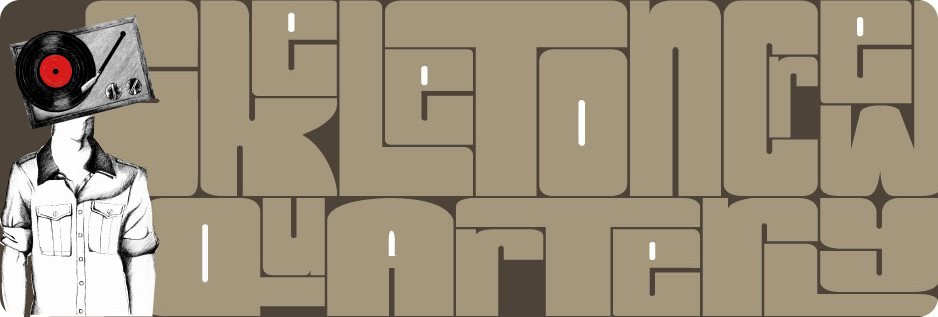
New Age
The Albertans
Ernest Jenning Records Co.
SCQ Rating: 67%
There’s a bookish cutesiness pervading The Albertans’ debut full-length that I’m admittedly having trouble evaluating. Like any music-obsessive, Skeleton Crew Quarterly has a threshold when it comes to templates; in other words, the ability to predict exactly where a song’s going from the first few bars is not a superpower I’m after. The Albertans put me on guard because their peppy, girl/boy vocal-tradeoffs reflect the same playful sophistication that bands like Stars have been fashioning their posh pedestal on and frankly, with no offense intended towards Stars, we don’t really need a surplus of that expertly honed sugar-pop.
First offering ‘Jackpot’ made me realize that fact straightaway (perhaps because of some vocals that match the dramatic flair – not the timber – of Stars’ Torquil Campbell) but The Albertans’ songwriting thankfully offers more avenues than New Age’s polish suggests. ‘The Wake’ may start out almost identical to Margot and the Nuclear So-and-So’s ‘Hello Vagina’ but it carves out its own pulsating groove, one that can’t decide whether it should stay insular or be dropped in the middle of a house party. That indecision also benefits ‘Mila’, which starts out like an upbeat, paint-by-numbers rock jam before deviating into a heartfelt second suite that amplifies on the heels of some tough guitar and great backing vocals. At its early stages, The Albertans look poised to pull the rug out from under me with frilly arrangements that belie inspired songwriting.
That story arc never gets realized, due in part to The Albertans’ ill-advised slow tracks. Sparse arrangements on ‘May’ and ‘Mellow’ prove boring missteps, revealing the band’s limitations as songwriters and, alternately, their cunning know-how when it comes to dressing compositions up. Striking a topsy-turvy balance between deconstructing pop and flat-out adhering to its recent flavors, New Age tries its best to marry the idiosyncratic and catchy. Without any hint of a catharsis bubbling underneath however, the majority of these songs feel like hollow workouts.









